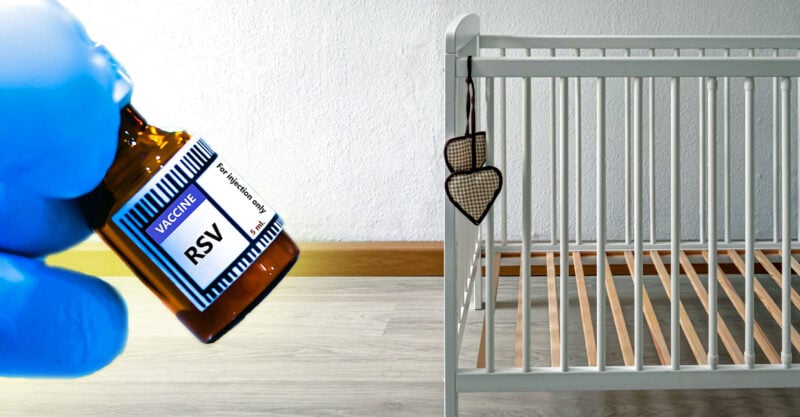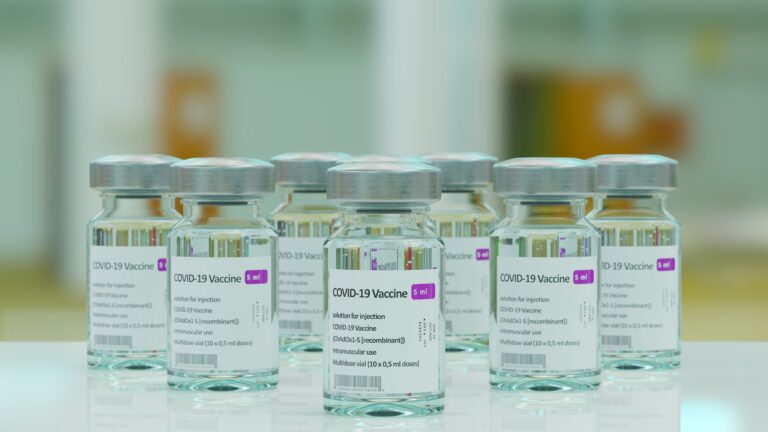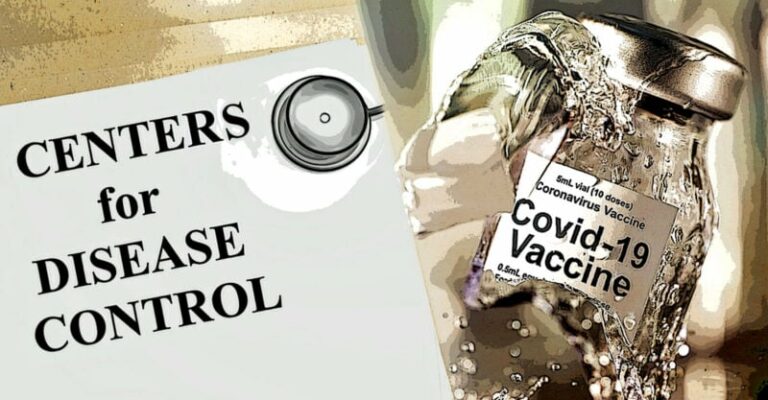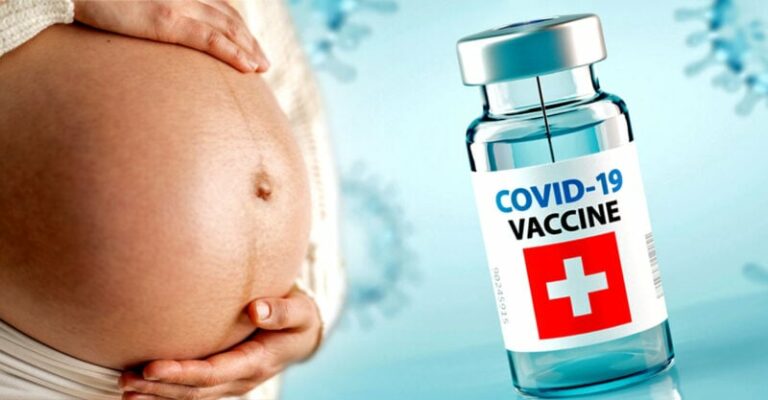CHD FOIAs VAERS Reports of Infant Deaths Following RSV Vaccines
Children’s Health Defense on Tuesday filed FOIA requests with the CDC for communications related to two reports of infant deaths following the accidental administration of the RSV vaccine.
Published in The Defender May 15, 2024 by Brenda Baletti, Ph.D.
Children’s Health Defense (CHD) on Tuesday filed Freedom of Information Act (FOIA) requests with the Centers for Disease Control and Prevention (CDC) for communications related to two reports of infant deaths following the accidental administration of the respiratory syncytial virus (RSV) vaccine.
The reports — of a 27-day-old boy and a newborn girl — were submitted to the Vaccine Adverse Event Reporting System (VAERS). According to the reports, both babies died within hours of vaccination.
CHD submitted the FOIAs after the CDC declined to provide details about its knowledge of the reports to The Defender. The agency said only that although the VAERS reports indicated the infants died after receiving the RSV shots, the reports were mistaken — neither infant had received the shot.
The Defender last week reported on a study by CDC researchers published in Pediatrics. The study identified 34 reports to public health agencies of babies mistakenly given the RSV vaccine. Seven of the babies experienced adverse events and one of those babies was hospitalized.
The numbers and injuries came from the researchers’ analysis of the VAERS reports for the RSV vaccines, which are not approved for children.
The analysis found 27 reports of the Pfizer RSV vaccine (Abrysvo) and seven reports of the GSK RSV vaccine (Arexvy) mistakenly administered to children under age 2 between Aug. 21, 2023, and March 18, 2024.
The analysis did not mention the two VAERS reports of infants who received an RSV shot and died.
The Defender asked the CDC why the report on the 27-day-old baby was missing from the analysis. An agency spokesperson responded, “It was found that the child did not receive an RSV vaccine. Therefore, this case is not included in the study.”
In response to a follow-up email from The Defender requesting more details, the spokesperson said, “This was an error in filling out the VAERS report,” but declined to explain how the CDC determined there was an error.
The Pediatrics paper provides a summary table of the reports in VAERS. Footnote “a” in the table noted, “One additional report not included in this analysis suggested that a potential error occurred that could not be verified.”
When asked if that statement referred to the report of the 27-day-old infant who died, the CDC did not respond.
Lot number shows newborn received Pfizer RSV shot
After reading The Defender article on the Pediatrics paper, data analyst and VAERS expert Albert Benavides alerted The Defender to the report of the newborn girl who died following an RSV vaccine.
The second VAERS report was more difficult to find because the vaccine and vaccine manufacturer fields were left blank in the VAERS report.
Benavides identified the entry as the Pfizer RSV vaccine based on the lot number, which was listed in VAERS. The lot number is a string of numbers and letters that tracks this specific batch of a vaccine from production to administration.
Benavides said the search terms the researchers used to search the database would not have identified this case because they didn’t include lot numbers in addition to the names of the vaccines.
The Defender sent the VAERS report of the newborn girl who died to the CDC and asked why it was not included in the study.
The CDC responded, “In response to your question on these VAERS report [sic], it was found that neither child received an RSV vaccine.”
Further inquiries requesting more details on both reports were met with boilerplate answers about how the CDC responds to VAERS reports of serious events.
The CDC did not respond when asked if the agency had even identified the VAERS report on the death of the newborn girl.
In March, The Defender worked with Benavides to identify several instances in the VAERS database of severe adverse events from the RSV vaccine in newborns, pregnant women and people in age groups for which the RSV vaccines were not approved.
CDC guidance on accidental vaccination for children is ‘shocking’
RSV is a common respiratory virus that usually causes mild cold-like symptoms, but in some cases can lead to hospitalization and death in infants and the elderly.
By age 2, 97% of all babies have been infected with the RSV virus, which confers partial immunity, making any subsequent episodes less severe.
However, the disease burden for infants can be serious. In the U.S., RSV infection is the leading cause of infant hospitalization among those younger than 6 months, although an extremely small number of children will die from RSV.
The numbers of deaths from RSV among infants in the U.S. are so small — numbering in the tens or low hundreds — that they are typically reported in raw numbers rather than as case fatality rates.
Both Pfizer’s and GSK’s first RSV vaccines were approved in May 2023 for people ages 60 and older. Pfizer’s Abrysvo was approved in August 2023 for pregnant mothers during part of their third trimester, targeting RSV prevention in babies.
GSK halted its trials of Arexvy for pregnant women after identifying an increased risk of preterm birth among vaccinated mothers. A post-marketing study last month found a similar safety signal for Pfizer’s Abrysvo.
The RSV vaccine is not approved for infants or children and has not been tested in that age group, so inadvertent administration of a vaccine is a serious mistake, retired pediatrician Dr. Paul Thomas told The Defender.
Pediatricians see RSV every winter, Thomas said. He added that in his practice of 15,000 active patients with 30-40 newborns a month, “there would only be a few hospitalizations if any for oxygen support. Not a single infant in my practice ended up in the ICU and none died.”
He said very premature infants or those with chronic lung or heart illnesses are at greater risk and there are protocols showing they could benefit from Synagis, a monoclonal antibody treatment approved for children.
“The bottom line is that while it would be wonderful if a truly safe and effective RSV vaccine was developed and tested against saline placebos looking at all health outcomes over at least a year, and there were actually no serious side effects, then vaccinating all infants might make sense,” he said. “The current products on the market are simply far too dangerous to make sense when looking at risks and benefits.”
Despite the demonstrated risks and the lack of testing in children, in instances where an RSV vaccine is given in error to children, the CDC says “No special monitoring is needed.”
“This is shocking,” Thomas said, especially given the apparent baby deaths in VAERS.
“We now know mistakes like this can be fatal,” he said. Thomas said it would be prudent to closely monitor an infant who received the vaccine by mistake and provide the support needed to prevent sudden infant death syndrome (SIDS).
“To be clear when a vaccine kills an infant this should not be called SIDS but rather a fatal vaccine reaction. My condolences to the families. This is just so sad.”
Brenda Baletti, Ph.D. is a senior reporter for The Defender. She wrote and taught about capitalism and politics for 10 years in the writing program at Duke University. She holds a Ph.D. in human geography from the University of North Carolina at Chapel Hill and a master’s from the University of Texas at Austin.
Suggest a correction







